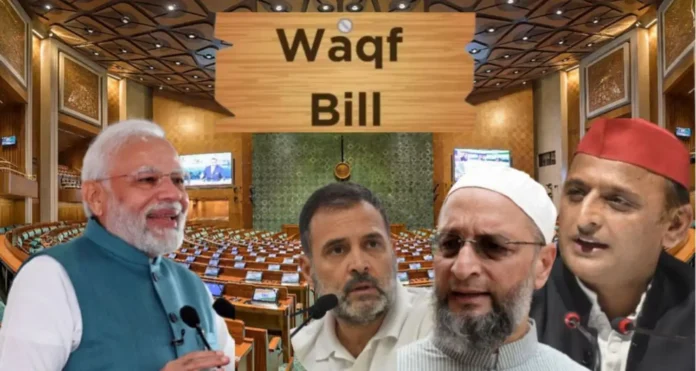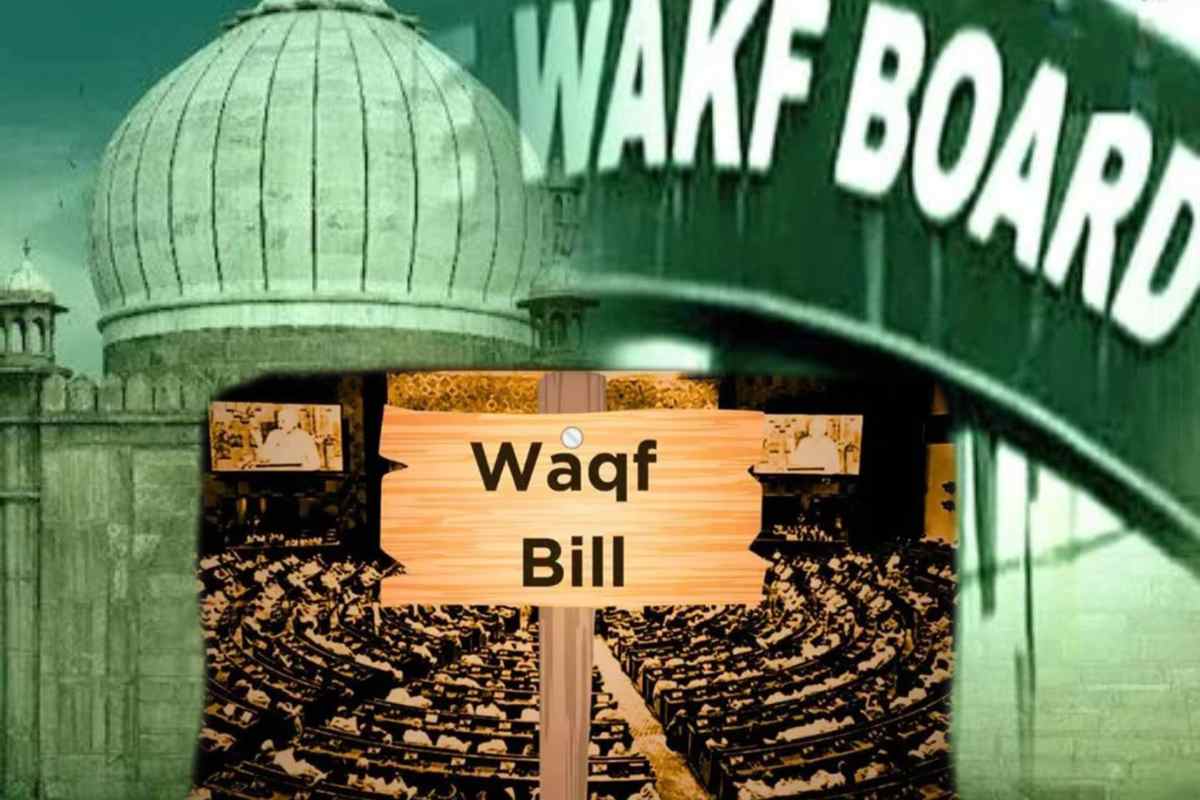On April 2, 2025, the Lok Sabha (India’s lower house of Parliament) passed the Waqf (Amendment) Bill, 2024, with 288 votes in favor and 232 against after a ten-hour-long debate. This bill introduces major changes to the administration of Waqf properties, which has led to intense discussions across the country.
While the government claims that these amendments will enhance transparency and reduce corruption, many political parties and religious groups argue that the bill interferes with religious autonomy. The opposition has raised concerns about the inclusion of non-Muslims in Waqf Boards, the removal of the ‘Waqf by user’ rule, and the government’s increased control over property disputes.
What is Waqf?
In Islamic law, Waqf refers to a charitable donation of property or land for religious or public welfare purposes. Once declared as Waqf, a property cannot be sold, transferred, or inherited, and it must be used to serve the community forever.
In India, Waqf properties include mosques, graveyards, orphanages, madrasas (Islamic schools), and other religious or charitable institutions. They are managed by State Waqf Boards, which function under the supervision of the Central Waqf Council.
India has:
- More than 850,000 Waqf properties
- Nearly 900,000 acres of land under Waqf management
This makes Waqf properties one of the largest sources of religious land holdings in the country.
History of Waqf Laws in India

Over the years, India has introduced several laws to regulate Waqf properties.
- The Waqf Act, 1954 – This was the first official law that aimed to register and manage Waqf properties in independent India.
- The Waqf Act, 1995 – This law strengthened Waqf administration by creating State Waqf Boards and a Central Waqf Council.
- The Waqf (Amendment) Act, 2013 – This law provided Waqf Boards with more powers to reclaim encroached properties and prevent illegal use of Waqf land.
The Waqf (Amendment) Bill, 2024, introduces several significant changes to this existing framework.
Key Changes in the Waqf (Amendment) Bill, 2024
The bill modifies multiple aspects of Waqf property administration. Some of the most important amendments are:
- Inclusion of Non-Muslim Members in Waqf Boards
Previously, only Muslims could be part of State Waqf Boards since they deal with Islamic religious properties. However, the new bill requires that at least two non-Muslim members be included in both the State Waqf Boards and the Central Waqf Council.
The government argues that this change will promote inclusivity and transparency. However, many Muslim organizations have opposed this move, saying that it interferes with their religious rights and autonomy.
- Removal of ‘Waqf by User’ Provision
Earlier, if a property was used for religious purposes for a long period, it could be declared as Waqf property. This process was known as ‘Waqf by user’.
The new amendment removes this provision. Now, a property can only be declared as Waqf if the original owner officially donates it as a Waqf.
Critics argue that this change endangers historic religious sites, including old mosques, shrines, and graveyards, that were traditionally recognized as Waqf based on long-standing community use.
- Restricting Who Can Declare a Waqf
According to the new bill, only a person who has been a practicing Muslim for at least five years can declare a property as Waqf.
This rule excludes recent converts to Islam from donating property for religious purposes, which some believe is unfair and restrictive.
- More Government Control Over Property Disputes
Previously, disputes related to Waqf property were mainly handled by Waqf Boards or courts.
The new bill gives the District Collector (a government official) the authority to decide ownership disputes related to Waqf properties.
This means that the government now has greater control over Waqf land, which has raised concerns about political interference in religious property management.
- Creation of Separate Waqf Boards for Specific Muslim Communities
The amendment allows separate Waqf Boards for the Bohra and Agakhani communities, who follow distinct Islamic traditions.
The government argues that different sects should manage their Waqf properties separately. However, some critics worry that this could lead to further division within the Muslim community.
Government’s Justification for the Amendments
The Bharatiya Janata Party (BJP)-led government claims that these amendments are necessary to:
- Reduce corruption and mismanagement in Waqf properties
- Prevent illegal land acquisitions
- Make Waqf properties more accountable and transparent
During the debate, Union Minister Kiren Rijiju mentioned that there have been instances where even government properties, including Parliament House, were claimed as Waqf land. This, he argued, created legal complications and justified the need for stricter rules.
Opposition to the Bill
Several opposition parties, Muslim organizations, and legal experts have criticized the amendments, citing the following concerns:
- Interference in Religious Autonomy
Forcing non-Muslim members into Waqf Boards is seen as a violation of the community’s right to manage its own religious affairs. Many argue that this goes against Article 26 of the Indian Constitution, which protects religious freedom.
- Fear of Losing Waqf Properties
By removing the ‘Waqf by user’ rule, many historical religious sites could lose their Waqf status, making them vulnerable to commercial development or government takeover.
- Increased Government Control
Giving District Collectors the final authority over property disputes means that Waqf Boards will have less power in managing disputes. Many believe this could lead to political interference in religious property matters.
- Potential for Communal Tensions
Some believe that the changes in Waqf laws could increase tensions between different religious groups, especially if disputes arise over land ownership.
Moving Further

The Waqf (Amendment) Bill, 2024, has sparked intense debate, with the government claiming it promotes transparency, while critics argue it undermines religious autonomy. Both perspectives have merit, but the larger question is whether the government’s increased control over Waqf properties is truly necessary.
On one hand, there is no doubt that mismanagement and encroachments exist within Waqf properties. Cases of land disputes, illegal sales, and corruption have been reported. If the amendments help streamline Waqf property management, they could benefit the Muslim community by ensuring fair use of these assets.
However, the bill also raises concerns about state interference in religious matters. By mandating the inclusion of non-Muslims in Waqf Boards, removing the ‘Waqf by user’ rule, and giving government officials the final say on property disputes, the amendments could dilute the authority of the Muslim community over its own religious institutions. This sets a precedent—if similar rules were applied to Hindu or Christian religious trusts, would they be equally accepted?
Ultimately, the success or failure of this bill will depend on how it is implemented. If it ensures accountability without infringing on religious rights, it may prove beneficial. Otherwise, it could lead to legal battles and social unrest.


